This book is a critical study of emergence of Muslims of Bengal, an elaborative study of the profile of Murshidabad district as one of the Muslim majority district in West Bengal, their political aspirations and attitude and lastly an attempt has been made to study the political attitude and participation of the Muslim leaders of the district. After partition Murshidabad was expected to go to Pakistan, if the two nation theory was applied when determining its position. However, the Radcliff Award gave Murshidabad, with its Muslim majority of 56% somewhat unexpectedly for the inhabitants of the districts to India. The national political leaders of the time like Syed Ahmed Khan of Aligarh movement had a liberal attitude towards educating the Muslim women but latter showed a hostile attitude towards Hindu-Muslim unity. Similarly Md. Ali Zinnah sprang up with his two nation theory which again creates a distance between the two religious communities and later on the hostile demand for separate nation. Jinnah has mobilized the Indian Muslims for creation of Pakistan on the basis of two-nation theory. But he did not explain as to how the Muslims who were responsible for truncation of united India could co-exist with another nation under a Hindu majority secular and democratic state. MaulanaAbulKalam Azad (1888-1958) was the most prominent leader to support Hindu-Muslim unity opposing the partition of India on communal lines. With deprivation of separate electorates and reserved seats, Maulana Azad and some of his co-religionists preferred to share power in Nehru led Congress Government and left the Muslim masses completely leaderless. Had the then Muslim leadership taken up Hindu-Muslim unity as a prime focus of their agenda and made sincere efforts to unload the mental burden of their community that was carrying the psyche of two-nation theory they would have done a well appreciated national service in general and positive service to their community in particular. Given this broad theoretical framework, the present study is a modest attempt to find out the significance of our study of the Bengali Muslims of Murshidabad district in tracing out their political participation and attitudes.
Hence the author researcher tried to study the political participation of the Muslim leaders of Murshidabad, their integration with secular society. The author also studied the extent of political participation of the Bengali Muslims in India’s democratic governance along with their acceptance of plural culture of our society. The author tried to study the political participation and attitudinal perception of the Bengali Muslims in Murshidabad. In Bengal there exist class stratification between ashrafs (Urdu speaking non-Bengali Muslims) and atraps (Bengali speaking poor class Muslims). Ashrafs are noble class Muslims, educated, propertied landowning class and atraps are landless poor peasants with very less or with no educational background. Hence the Muslims lived under social disabilities and the upper class Muslims did not involve in any social interaction with the Bengali atraps Muslim community in Bengal. The partition made the identity of the Muslims of West Bengal (as well as Muslims of whole India), very problematic. The Bengali Muslims were not against partition of the country like the ML but they stood for united Bengal plan and discriminations existed between ML and Bengali Muslim leaders on several issues like demand for separate electorate for Muslims. Partition did not determine the status of the Muslims in the newly created nation which had been formed on the basis of religious identity. Even there had been an age old dichotomy between the Muslim identity and the Bengali identity. The identity of the Muslims of Bengal had been partitioned long before the actual partition happened. The fragmented identity of the Muslims of Bengal haunted them very much. The non-Bengali Muslims of Bengal and rest of India in general believed that the Muslims of Bengal were not true Muslims. Primarily, two factors were at play behind this misconception about the Muslims. The majority of the Muslims of Kolkata were non-Bengali origin. They used to speak Urdu or Arabic or Persian or Hindi language and they were classified them as upper class Muslims stressed their foreign origin publicly to enhance their social status. During the late 19th and early 20th centuries, the Muslim writers or the intellectuals of Bengal developed a distinct style of Bengali language termed as ‘puthi’ literature a translated work from Islamic religious texts which were in Arabic or in Persian language but contains some Arabic or Persian terms. However at the subaltern level, both Hindus and Muslims in Murshidabad district shared almost the same language (Bengali) and culture. Yet the Muslims of Bengal often faced embarrassing questions, “Oh are you a Muslim or a Hindu”? But interestingly the Bengali Muslims of Bengal opted for a dual identity and termed as Bengali Muslim.
After partition the Muslims of Murshidabad were in no better position than the North Indian Muslims who had to stay back and adjust their lives with the emerging new nation. The socio-political attitudes of the Muslims in Murshidabad have not been adequately researched. The lacuna is quite serious. While it is known that some Muslims in Murshidabad who had before partition, vociferously backed the Muslim League and the demand for Pakistan, were not eager to cross over the boundary after partition of the subcontinent. Hence staying in India and adjusting their life with their Hindu compatriots or crossing the border, both the cases pointed out the intensions of the Muslim – whether the community possesses anti-national feelings or a pro-secular character.The partition made the identity issue of the Muslims more problematic than before. As a section of the Muslims like Kazem Ali Mirza, FarhadMurtuza Reza Chowdhury, Imajuddin Biswas, Abdul Hamid, Shawakat Hossain all were in favor of partition and the supporters of Muslim League and demanded Pakistan, the loyalty of the Muslims as a whole was questioned. In this context the question becomes more important what is their attitude towards Indian state and secularism. Thus the research problem lies in finding the dilemma of the Muslims in the district of Murshidabad.The Muslim political leaders like Kazem Ali Mirza, Abdul Bari, KhudaBaksh (who was once the supporter of Muslim League), Syed Baddrudoza, LutfalHoque, AbdusSattar in post partition era raised their voice in Bengal Assembly in various debates is an excellent example of political participation from the district. They demanded an overall development of the district to ensure economic betterment of the district people irrespective of any community. This encouraged the researcher to study the political participation and attitudes of the Muslims in the context of Indian secularism and when successful democratic institutions can only work with the active participation of its citizens. The present work is an attempt to make an intensive study of political attitudes and participation of the Muslim community in West Bengal in Murshidabad district in post independent era.At the backdrop of these developments the researcher has chosen the district having Muslim population of Bengali origin where differentiations exist between Muslims of different category like ashrafs and atraps, having poor socio-economic condition. Hence the author made an attempt to assess the nature of political attitude and participation of the Bengali Muslim leaders and their orientation towards secular and democratic society.

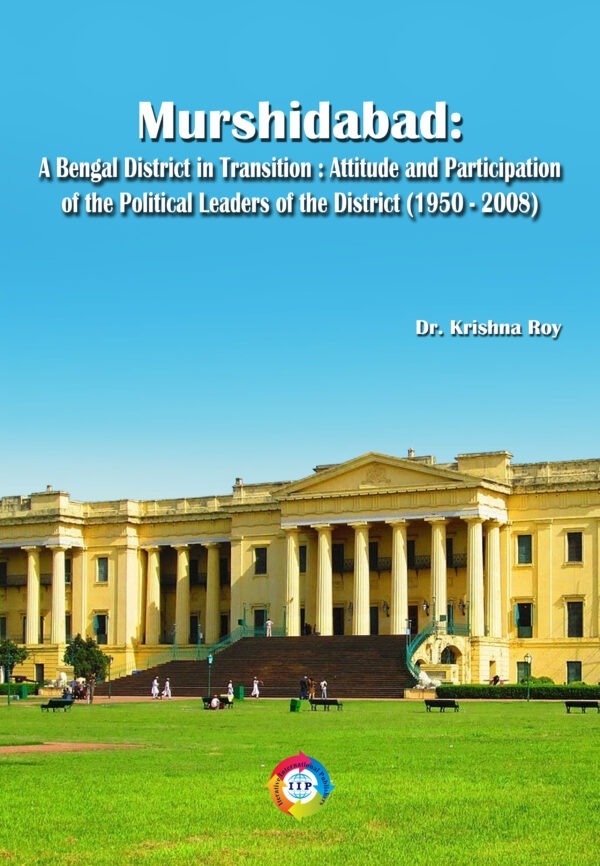
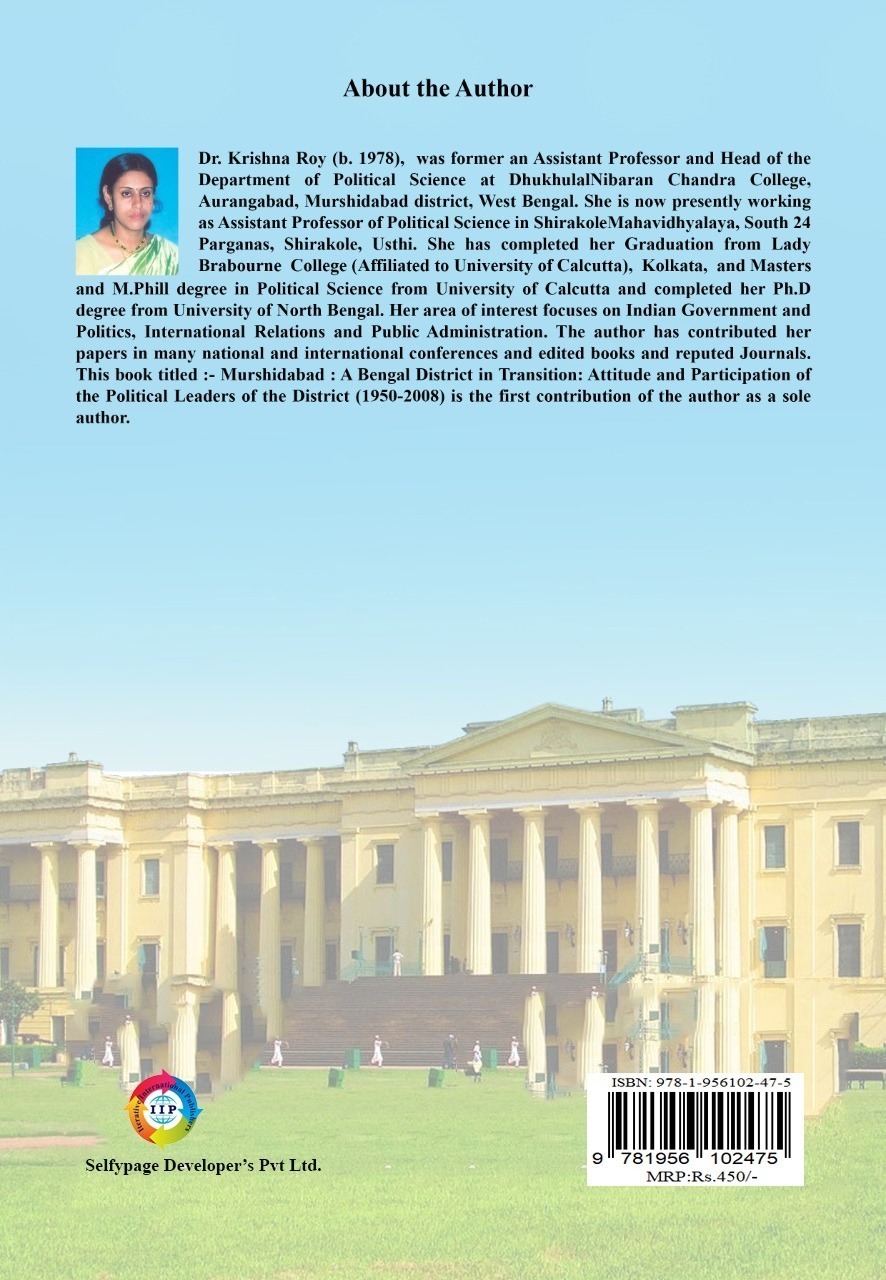
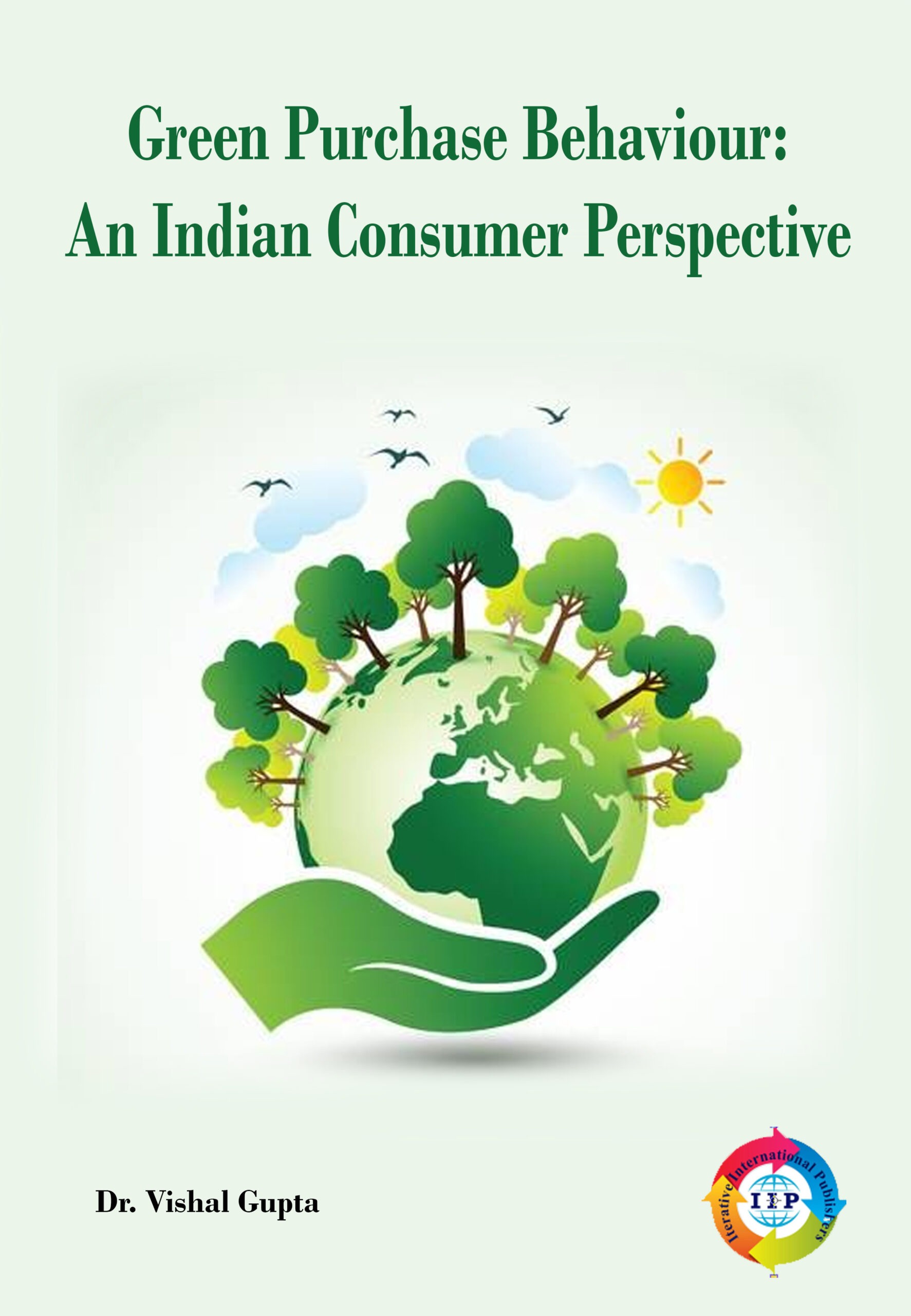
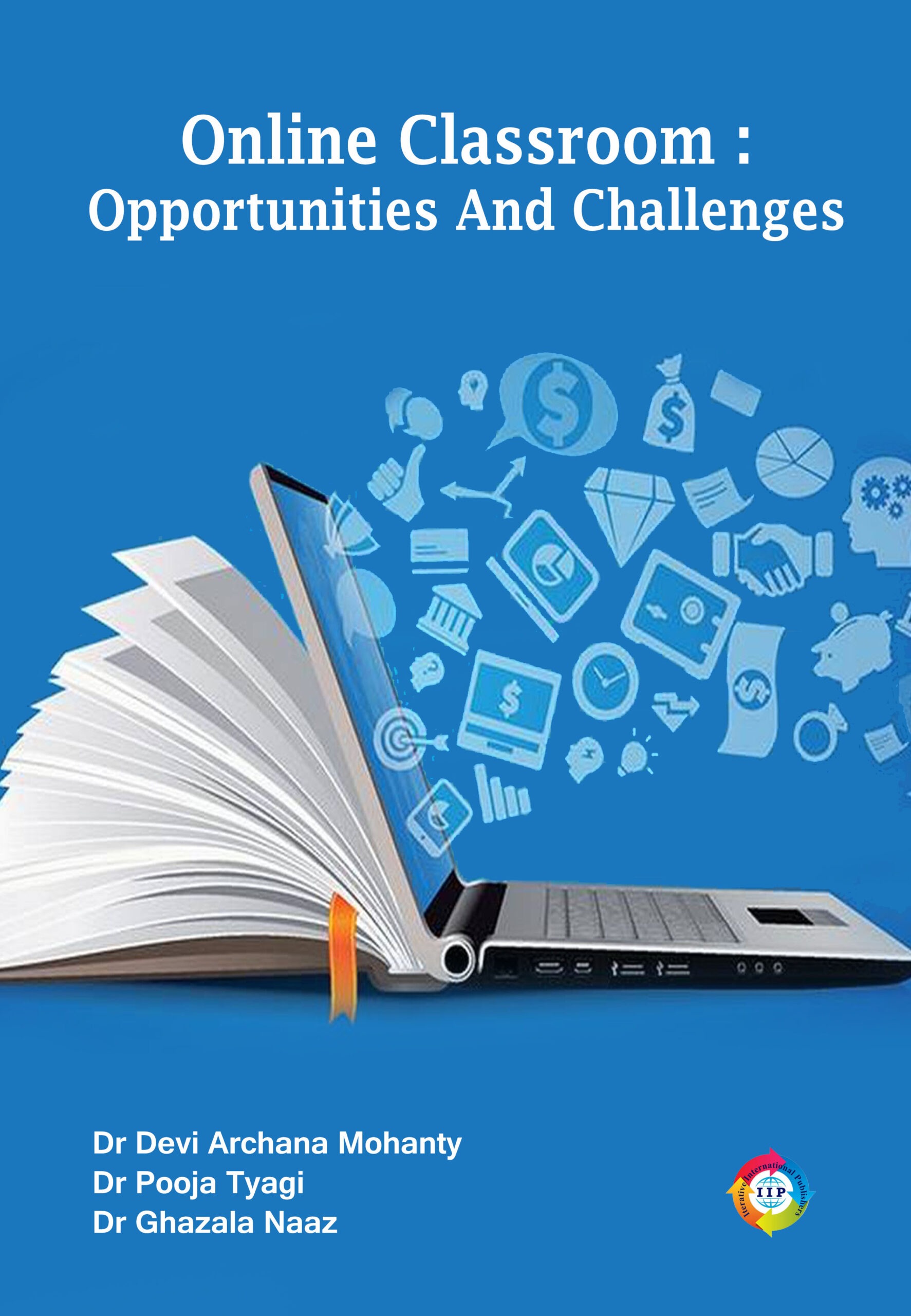
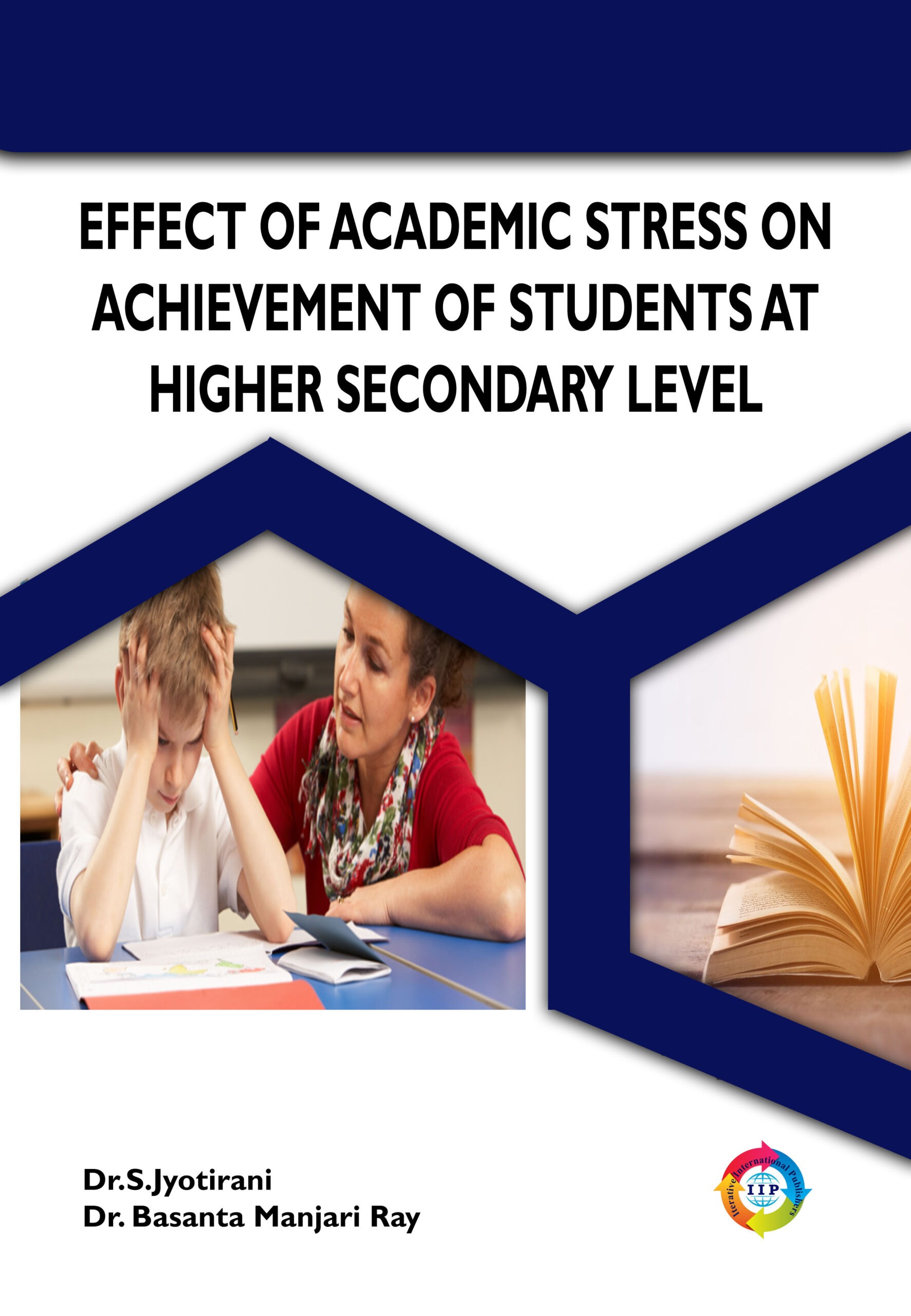
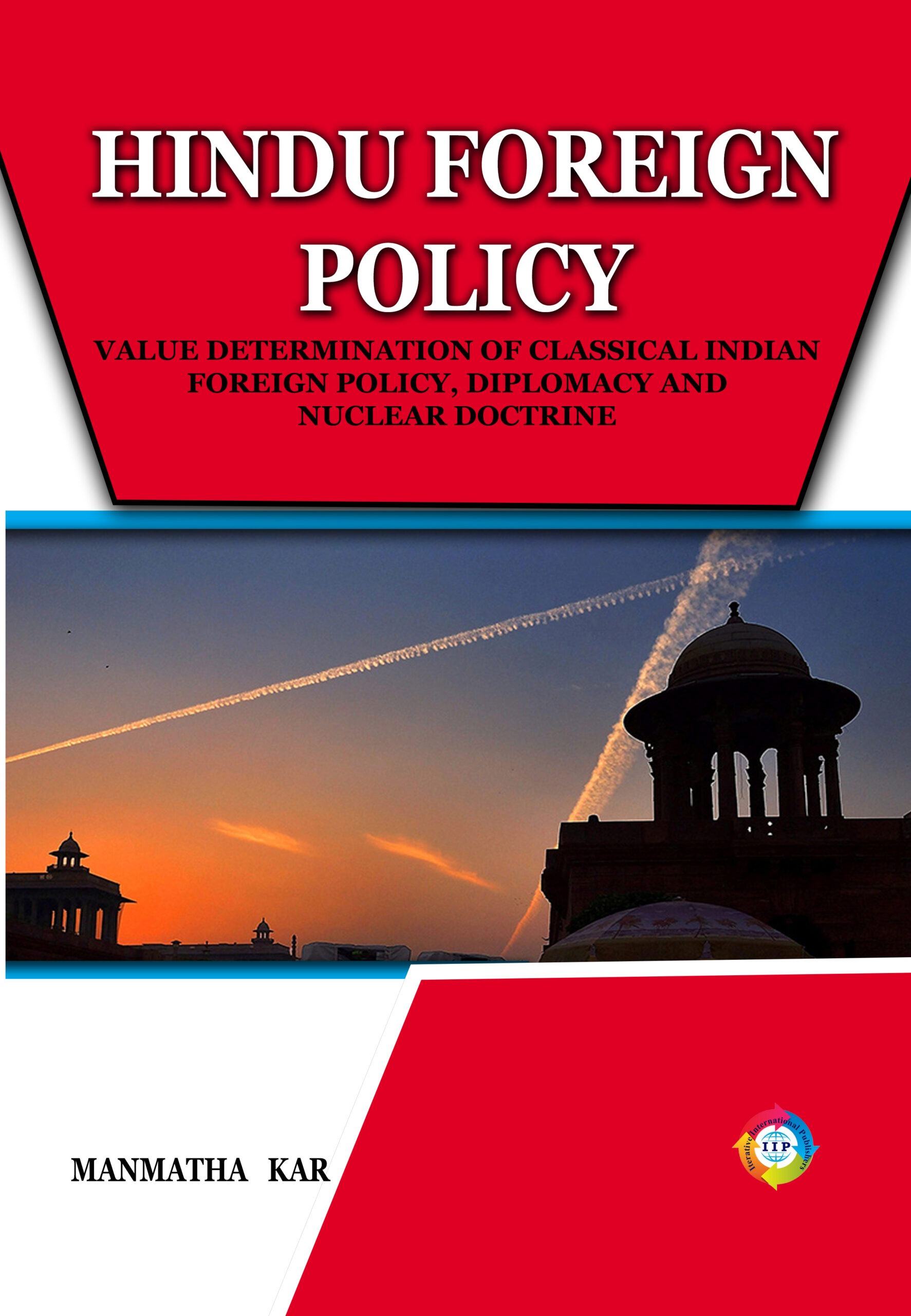
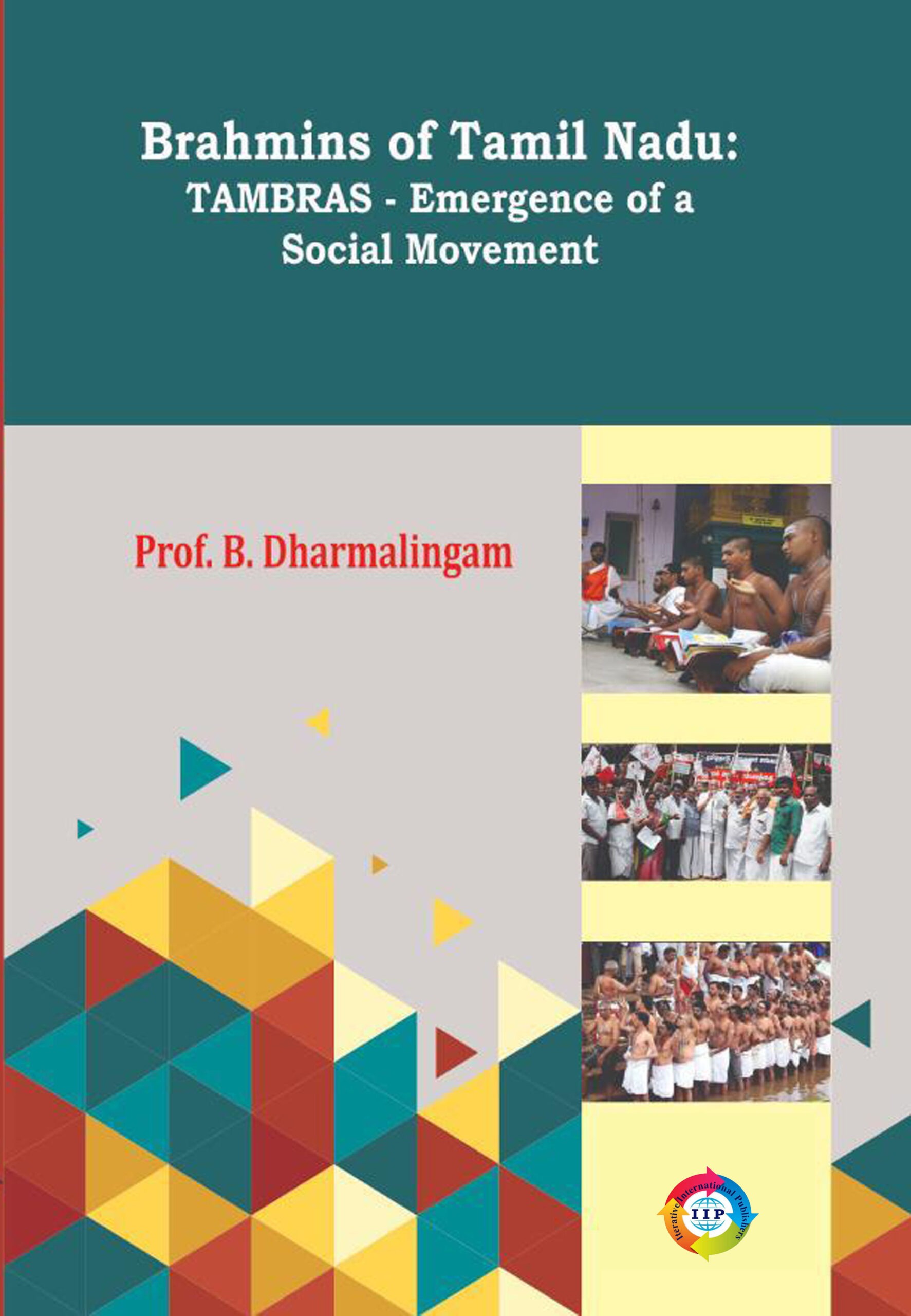
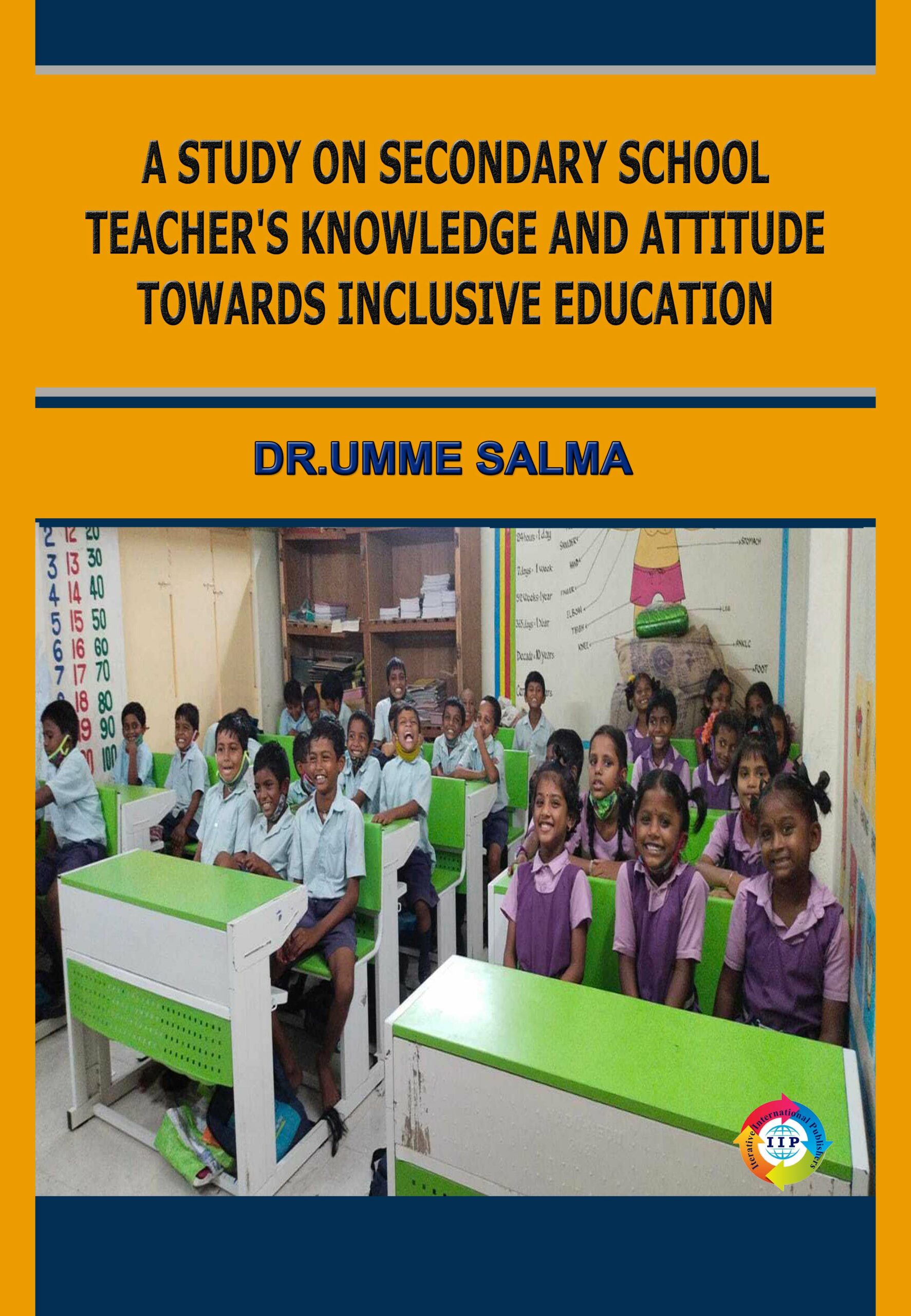
Reviews
There are no reviews yet.